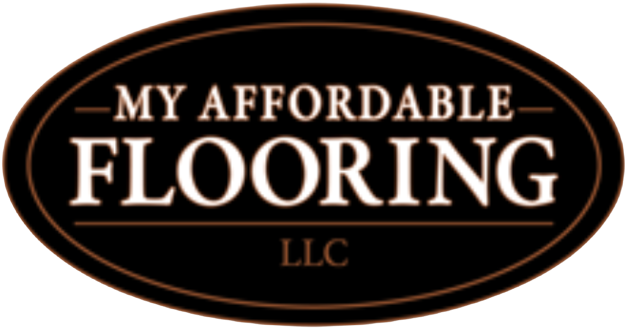Vinyl flooring offers a cost-effective alternative to floor your home. But where are the best places to install it? Whether it’s your house or your office, there’s a place for vinyl flooring.
This article explores what vinyl flooring is, the benefits of it, and the best places to install it.
What Is Vinyl Flooring?
Vinyl floors consist of tiles that are made from polyvinyl chloride (PVC), urethane, fiberglass, and foam gel.
A vinyl tile consists of three layers: the base layer, the visual layer, and the finish layer. These layers support one another to give you an absorbing and comfortable feeling that you don’t get with hardwood floors.
Pros of Vinyl Flooring
So many homeowners choose vinyl tiles for their homes because it offers so many benefits. For instance, vinyl tiles offer an inexpensive flooring material that works in any room of your home. Vinyl tile is also a low-maintenance material, easy to install, and adds comfort when you walk. And HGTV says that vinyl tiles are the main replacement method for cracked tile and flooring.
If you’re not sure if vinyl is right for you, read 5 Bedroom Flooring Ideas That Aren’t Carpet to explore some other options.
Where Can I Install Vinyl Flooring?
Over an Existing Vinyl Floor
According to a video from FlooringMyLife, you can add a new layer of vinyl flooring over existing tile. It’s important to consult a manufacturer or professional if you are unsure about anything before installing, however.
Kitchens
In a room where messes occur on the daily, a vinyl tile may be the solution for keeping your floors clean. Vinyl flooring is a low-maintenance material that’s easy to clean. Vinyl floors are also pretty resilient to liquid absorption, making cleanups a stress-free chore. This liquid resistance of vinyl tiles makes it a great choice for messy spots.
The Bathroom
Bathrooms are susceptible to moisture getting trapped; vinyl tile can help reduce that. Since vinyl flooring is almost maintenance-free, it makes cleaning up wet messes from your post-shower walk through an easy clean.
It’s important to know that vinyl tiles are not entirely invisible to damage from water and normal wear. Most vinyl tile manufacturers carry extensive warranties for their products, however, so that doesn’t need to be a deal breaker.
Your Office
Having a business is a financial investment, and so is the way you present it. Unfortunately, having a nice floor can break the bank for some people. That’s where going vinyl can help. For instance, according to My Home Advisor, the average cost to install vinyl flooring is $357. Compare that to an average cost of 1,830 for natural stone tile and $4,240 for wood flooring.
Worried that a cheaper floor will reflect poorly on you? Fear not, vinyl tiles come in many designs that can mimic ceramic tile and even wood flooring.
What Type of Flooring Is Best for Me?
Your home is both a sanctuary and an on-going project. If you’re thinking about installing new flooring, call on My Affordable Flooring. We can help you understand the many options available to you, and help you find the best ones for your lifestyle and budget.
